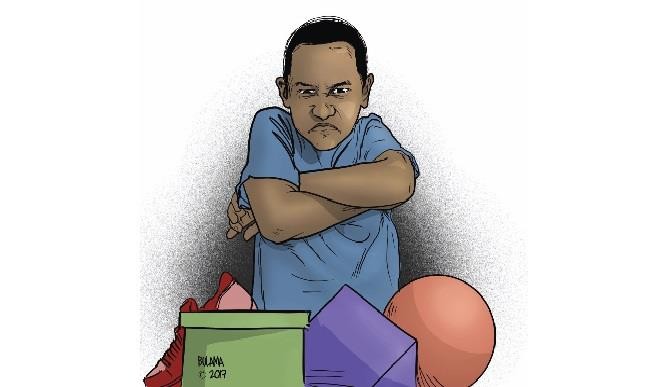How would you deal with an ingrate?
Ingratitude is rapidly becoming a virtue in our society. A lot of ungrateful people expect everything and, in return, give little or nothing. Ungrateful people are found everywhere. They could be our family member, spouse, kids, co-workers, or friend. Dictionary.com defines ingratitude as “the state of being ungrateful or unthankfulness”. In simpler terms, it means […]


Ingratitude is rapidly becoming a virtue in our society. A lot of ungrateful people expect everything and, in return, give little or nothing.
Ungrateful people are found everywhere. They could be our family member, spouse, kids, co-workers, or friend.
Dictionary.com defines ingratitude as “the state of being ungrateful or unthankfulness”. In simpler terms, it means when someone – be it a friend, family or someone close, does not appreciate whatever you do for him/her and would always find faults in whatever you did.
What causes this type of behaviour? If you have an encounter with someone who does not appreciate your kind gestures, how would you handle that person? LifeXtra got interesting responses from those spoken to.
Jos-based Dadson Ibrahim said “Most of the times you decide your course of action depending on the kind of person you are dealing with. If that person is a child, you obviously forgive him/her and teach themwhy they should respect the people who help them. If that person is a teenager, you might want to forgive a few of such mistakes.
It’s because teenagers go through a lot of emotional changes.
He added “You might want to explain to them why their attitude is wrong but don’t nag them much because teenagers are often easily irritated and your good intention might not go down well with them. People in the age range of 20-40 are usually career driven and very practical. In most cases, however, it is better not to think over why someone acted in this way and move on with your life. You don’t do good expecting a favour in return.
“You do it because you should help whoever you can along your way. I’m not asking you to go out of your way to help others, but assisting fellow beings often makes one happy. Also, it proves helpful if you stay cautious of people who have been ungrateful to you in the past. Don’t stop doing good, don’t do it with any expectations. And if it is my babe being ungrateful then she is on her own,” he concluded.
Speaking to LifeXtra, Is maeel, a student, said “Well, no matter what you do, there are bound to be ingrates, but continue your good works, and for the ingrate, ‘kill’ him with more love or whatever it is you’re doing to him/her. You are way above them so don’t stop.”
Lagos-based Bello Abdulrasheed Afolabi, says, “Where do I begin from? Okay, I will start with friends. All you have to do is watch your back and put them where they belong but when it comes to family; which is the worst and most difficult to handle, you need to run away from such people. If don’t, they’d begin to plan your downfall and if they don’t succeed, then they can go ahead with all sorts of things. So the best way of handling such people is just to run away. I said please run away from such people. I have seen and learned.”
Diana M. Rodriguez in her article “I say what I mean but I don’t say it meanly,” stated “Are ungrateful people oblivious or stingy? Does showing gratitude cost anything spiritually or burn a calorie?”
She added, “If a person has a grateful spirit, it comes very naturally. Selfish and self-absorbed people live in a world that revolves around the pursuit of their own happiness and satisfaction. They either haven’t been taught proper manners or they are too self-absorbed to exercise them.
“Ingratitude surely is one of the most destructive and harmful of all emotions or attitudes. There aren’t many situations that can hurt or anger as much as showing someone kindness, or doing something thoughtful, with little or no acknowledgement given in return.
Feeling hurt and deep frustration is just the tip of the resentment iceberg when being on the receiving end of ingratitude,” she concluded.
